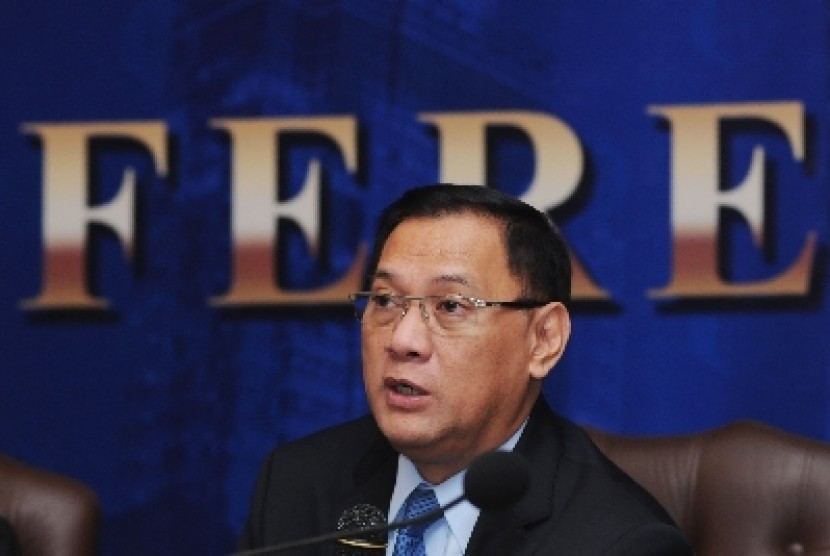REPUBLIKA.CO.ID, JAKARTA -- Bank Indonesia (BI) suggested exporters and entrepreneurs to receive DHE through Domestic Foreign Exchange Banks in Indonesia. The recommendation was made to maintain the availability of US dollars in the money market.
BI said it would impose sanctions to exporters and entrepreneurs who were not comply to the recommendation.
"When BI applies sanctions, they should not be as inconsistent economic actors," BI Governor Agus Martowardojo said Jakarta, Friday (29/11).
In the laws of foreign exchange, the central bank clearly allowed exporters doing business in Indonesia. But, on export business, the funds should pour back to Indonesia.
Exporters do not have the obligation to convert it in to rupiah. However, the funds should be brought back to respect Indonesian as the origin of funds.
Agus regretted that not many exporters obey the rules. Though, he said BI had provided a convenience for not requiring them to exchange their dollars. Exporter was not forced to hold the dollar in Indonesia and can be reused at any time.
In response to the weakening of the rupiah against US dollar, BI said to intervene the market. Agus said that the intervention is done to maintain the stability of the rupiah.
"BI always maintains the stability of exchange rate. We do intervention," he said.
Agus did not mention how deep intervention was. But usually, BI intervention would erode national exchange reserves.
He promised to publish the amount of foreign exchange reserves in due course. It will be seen how much the amount of remaining reserves was left.
This measurement will reflect the current state of the Indonesian economy. "For example, if the approximate foreign exchange reserve has no change. It shows how strong our economy is," Agus said.
Although rupiah currency was weakened, Agus saw the foreign exchange market (forex) in Indonesia is more liquid when compared with the first half of 2013.
On price formation, the condition of current economy is better. Even if there is economic turmoil, Agus said the turbulence is still believed could be maintained within the line of stability.
Ed: Nidia Zuraya


